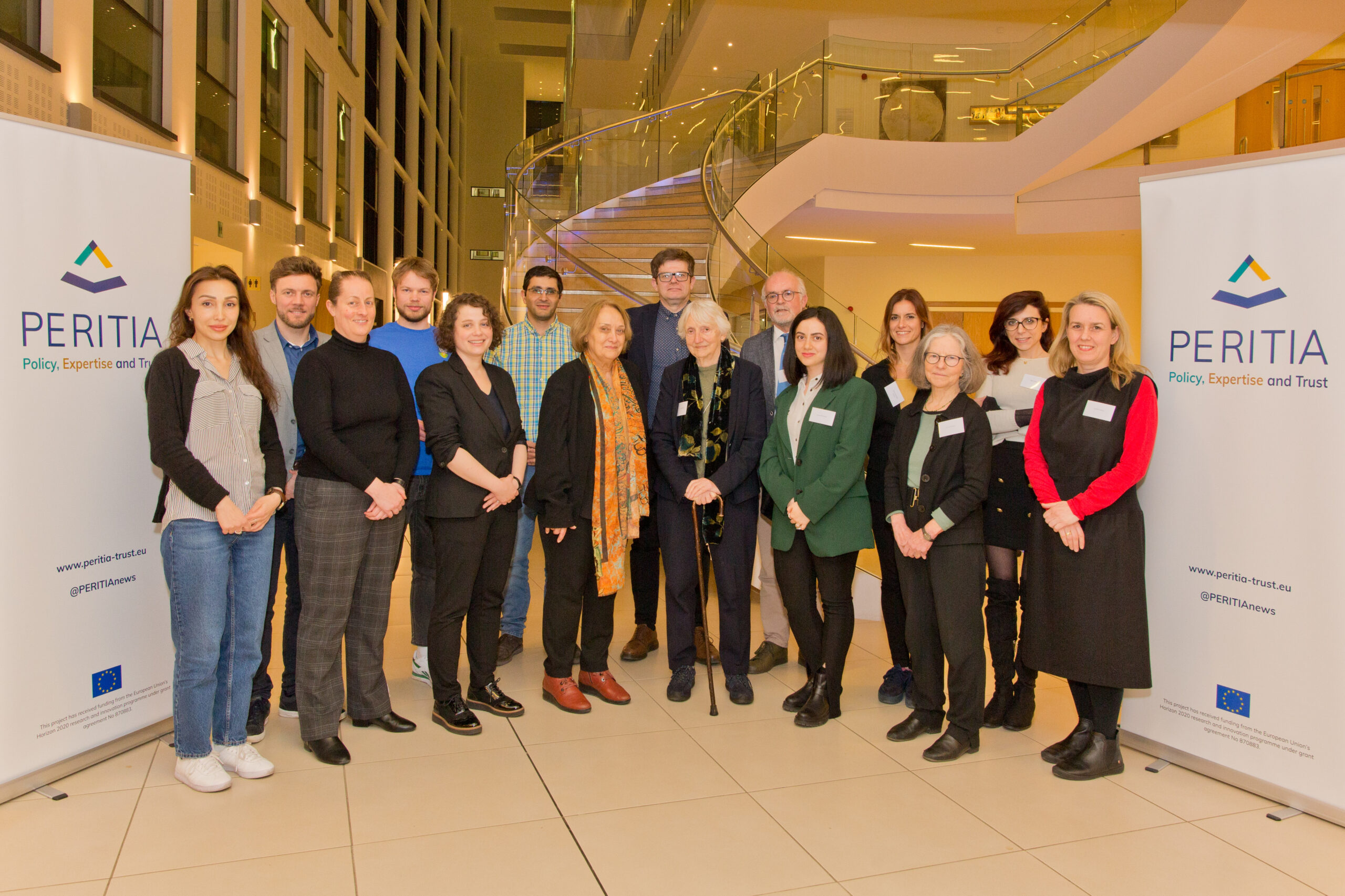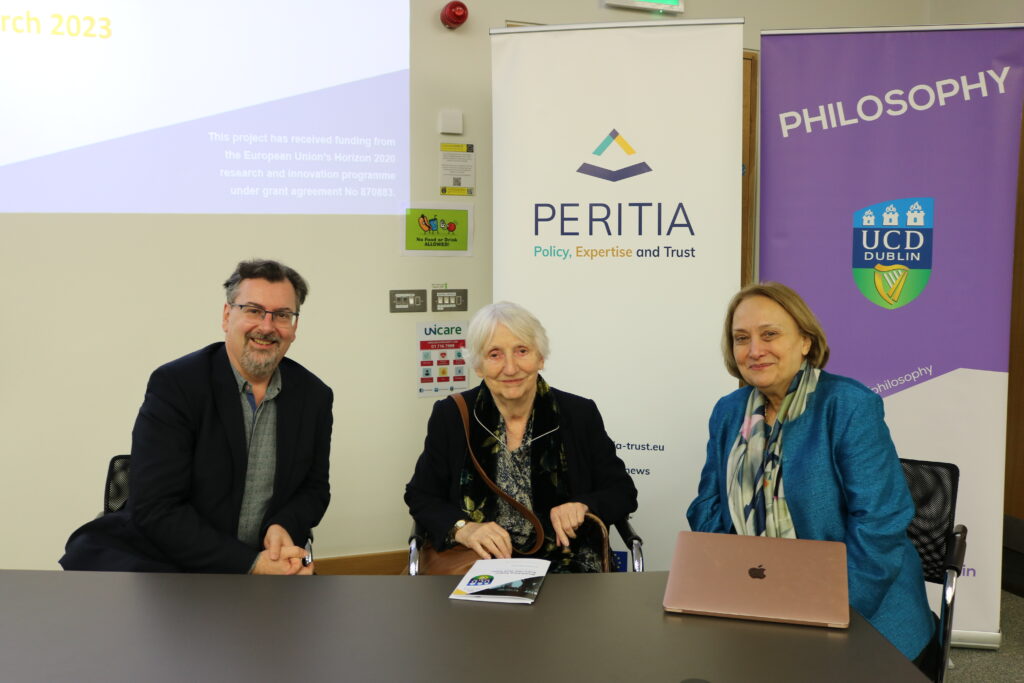
PERITIA’s Final Academic Conference: Rethinking Policy, Expertise and Trust
From 23–25 March, the UCD O’Brien Centre for Science hosted our final academic conference, covering a breadth of topics encompassed by PERITIA’s investigation of public trust in expertise and examined by scholars from a wide range of disciplines. Researchers from the fields of philosophy, sociology, political science, media studies, public policy and science communication presented their most recent findings on questions related to key themes of the project. Over those three days, over 200 participants attended over 55 refereed papers and 13 panel sessions, of which many were hosted by research projects working on the topics of trust and expertise.
The conference had three aims:
- To serve as a platform for early career researchers to present their latest research on trust, expertise and related issues and hence to help us rethink the core issues that preoccupy PERITIA.
- To bring together panels and representatives from the growing number of research projects on topics of trust and expertise from across Europe, and to create an opportunity for dialogues and cross fertilisations.
- To showcase some of the latest findings of PERITIA by speakers and panels across its 11 work packages.
The first day of the conference kicked off with welcome remarks by PERITIA Project Leader Maria Baghramian, followed by the launch of ‘The Trust Race’. In addition to the initial round of parallel paper presentations, the first day also featured a panel on ‘The Role of Trust and Cultural Change on Climate Action’ and then on ‘Deliberative Mini Publics‘. The latter presented reflections from PERITIA team members from the various capital cities where these DMP sessions were held, allowing the speakers to draw comparisons. After parallel panels on ‘Open Science, Trustworthiness and Integrity’ and ‘Trusting and Distrusting the Work of Literature’, respectively, Professor Orla Feely welcomed the participants and spoke of the continuing support of the university for the project. The first day concluded with a roundtable discussion on strategic crisis management in the EU co-organised by SAPEA and the Royal Irish Academy: ‘Why do we need public trust in times of crisis?’. This livestreamed session is now available online, and is highly recommended viewing.
The second day’s highlights included panels on citizens’ assemblies, ‘Trust in Science or Trust in Governments‘, and ‘Non-Epistemic Interests & the Social Credibility of Science‘. Participants were able to further exchange in a more informal setting at the conference dinner, which took place that evening.
The final day featured panels on the PERITIA and COGITO research groups and comparisons between perspectives on trust by three Horizon2020 projects, EnTrust, TiGRE, and PERITIA. The conference closed with words shared by the incomparable Onora O’Neill, chair of PERITIA’s advisory board, who reflected on the often insidious anonymity of public communication that marks this moment in modernity: ‘The digital age has given deception new tools,’ she warned. ‘May our words not go fatherless into the world.’
Pictured below: Colin Scott, Onora O’Neill, and Maria Baghramian. To read more about the conference and see other media, please click here.




